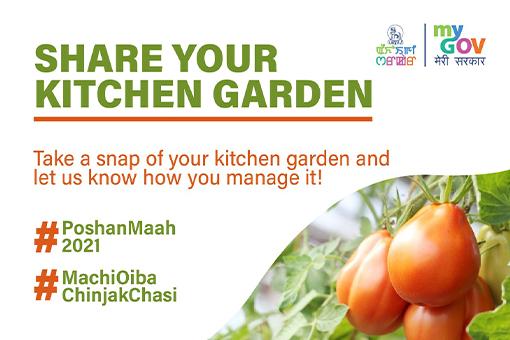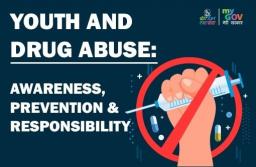Creative Corner
- Department of Art & Culture
- Creative Corner
- Department of Agriculture
- Department of Education
- Department of Fisheries
- Department of Horticulture & Soil Conservation
- Department of Information Technology
- Department of MAHUD
- Department of Science & Technology
- Department of Sericulture
- Department of Tourism
- Department of Trade Commerce & Industries
- Department Of Transport
- Directorate of Health Services
- Finance Department
- Forest Department, Government of Manipur
- General Administration Department
- Imphal Municipal Corporation
- Manipur Fire Service
- Manipur Police Housing Corporation Limited (MPHC Ltd.)
- Open Forum
- Social Welfare Department
Share Your Kitchen Garden
Start Date: 03-09-2021
End Date: 01-09-2022
Are you a proud owner of a lovely green kitchen garden? ...
Hide details













BrahmDevYadav 3 years 6 months ago
What is the importance of a garden in a house?
A well-developed home garden contributes significantly to daily food needs. It can supply households with nearly all the non-staple foods they need, such as fruit, vegetables, legumes, coconuts and root crops as well as spices, tea, coffee, medicines and flowers for ornamental purposes or for sale.
BrahmDevYadav 3 years 6 months ago
What are the benefits of having a kitchen garden?
1.We get fresh herbs whenever you want.
2. We know exactly what you're putting in your food.
3.It works out cheaper.
4.We become a lot healthier.
5.We get a calming dose of nature.
6.Plants repel mosquitoes.
7.There is an unbelievable sense of accomplishment involved in nature.
BrahmDevYadav 3 years 6 months ago
What is the difference between organic farming and natural farming?
In organic farming, organic fertilizers and manures like compost, vermicompost, cow dung manure etc. are used and added to farmlands from external sources. In natural farming, neither chemical nor organic fertilizers are added to the soil.
BrahmDevYadav 3 years 6 months ago
What are the benefits of organic farming?
*It is fresher. Organic produce is purchased fresh from farmers.
*It is free from chemical and pesticides.
*It is free from GMOs.
*It is seasonal.
*It is healthier for you and more nutrient dense.
*Organic produce is more sustainable.
*It supports local farmers directly.
*It preserves the environment.
BrahmDevYadav 3 years 6 months ago
What are the disadvantages of organic farming?
Organic food is more expensive because farmers do not get as much out of their land as conventional farmers do. Production costs are higher because farmers need more workers. Marketing and distribution is not efficient because organic food is produced in smaller amounts.
BrahmDevYadav 3 years 6 months ago
Why is organic garden free from toxic?
Growing crops without using chemicals is more eco-friendly because the crops are grown just as nature intended. We are not using pesticides, fungicides and herbicides, which are essentially poisons that pollute the soil and waterways.
BrahmDevYadav 3 years 6 months ago
Who eats organic food?
47% of household shoppers buy organic food for their households at least some of the time. 12% say they do so “all of the time.”
Is organic food safer?
Overall, it is better to eat organic. Organic diets we know lead to less pesticide and antibiotic exposure, but nutritionally, they are about the same.
BrahmDevYadav 3 years 6 months ago
Why is organic garden better?
Organic gardening helps to prevent a loss of topsoil, toxic runoff, water pollution, soil contamination, soil poisoning, death of insects, birds, critters and other beneficial soil organisms as well as eliminating pesticide, herbicide and fungicide residues on food from synthetic fertilizers.
BrahmDevYadav 3 years 6 months ago
What are the benefits of organic food?
The benefits of organic food:-
1.Organic produce contains fewer pesticides.
2.Organic food is often fresher because it doesn't contain preservatives that make it last
longer.
3.Organic farming tends to be better for the environment.
4.Organically raised animals are not given antibiotics, growth hormones, or fed animal
byproducts.
BrahmDevYadav 3 years 6 months ago
Which product is organic?
Organic food is grown without the use of synthetic chemicals, such as human-made pesticides and fertilizers and does not contain genetically modified organisms. Organic foods include fresh produce, meats and dairy products as well as processed foods such as crackers, drinks and frozen meals.